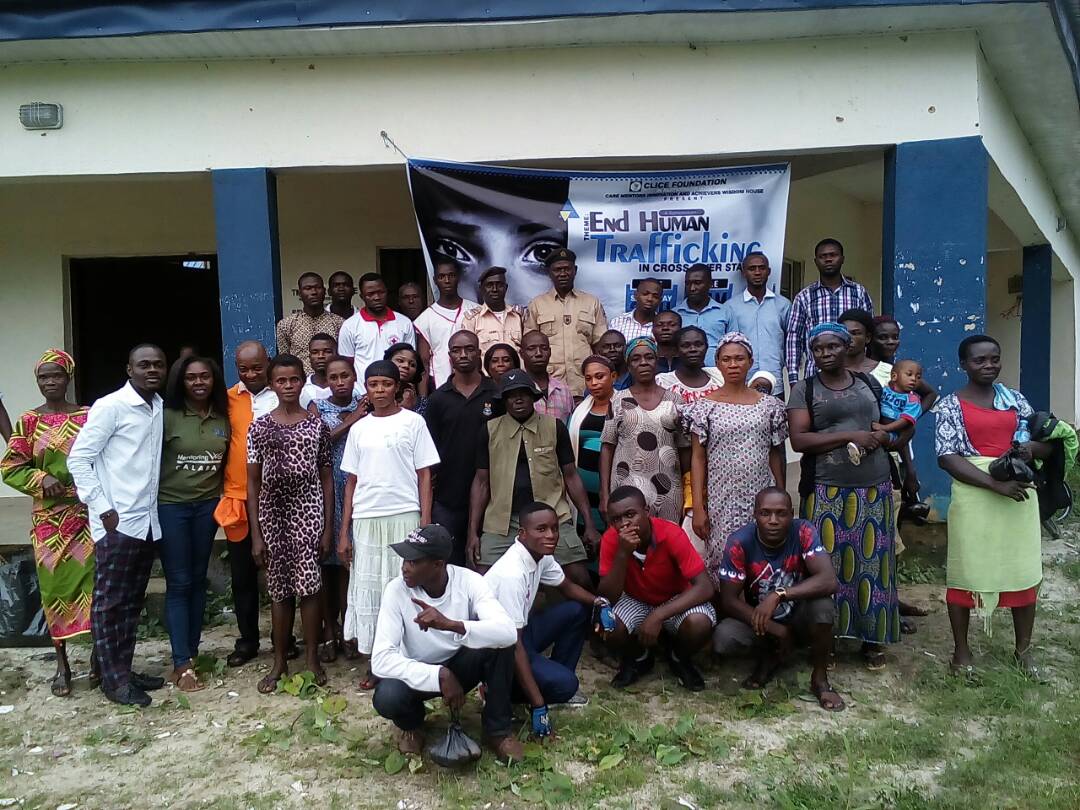By Frank Edima
The fight against human trafficking recently received a boost in Bakassi, a local government area in southern Cross River State when the Comfort Literacy Intervention and Capacity Enhancement (CLICE) Foundation organized a one day workshop on tackling the menace.
This formed part of activities marking the World Day Against Human Trafficking which in 2013, the United Nations set aside July 30 every year to gear up efforts towards combating the menace.
The IDPs who spoke to our correspondent expressed joy that their challenges were been noted by corporate bodies and efforts been made to help prepare them against such challenges.
Human trafficking is prevalent in 20 states in Nigeria of which Cross River State is one with Bakassi being one of the worst hit.
The symposium had human resources from the NAPTIP, Immigration, CLICE Foundation, American Corner Calabar and Care Mentors Innovation Networks who said it was in line with the objectives of advocating for the elimination of harmful practices against women and girls and youths.
The event will “raise awareness of the situation of victims of human trafficking and for the promotion and protection of their rights in line with the UN Global Plan of Action and the misconceptions of greener pastures theory,” one of the organizers said.
According to the United Nations Office on Drugs and Crimes (UNODC) Human trafficking is the acquisition of people by improper means such as force, fraud or deception, with the aim of exploiting them. It is a crime that exploits women, children and men for numerous purposes including forced labour and sex.
The International Labour Organization estimates that 21 million people are victims of forced labour globally. This estimate also includes victims of human trafficking for labor and sexual exploitation.
In 2016, the National Agency for the Prohibition of Trafficking in Persons and other Related Matters (NAPTIP) said about 1 million persons, most of them women and children, were trafficked in Nigeria annually.
Since You Are Here, Support Good JournalismCrossRiverWatch was founded on the ideals of deploying tech tools to report in an ethical manner, news, views and analysis with a narrative that ensures transparency in governance, a good society and an accountable democracy. Everyone appreciates good journalism but it costs a lot of money. Nonetheless, it cannot be sacrificed on the altar of news commercialization. Consider making a modest contribution to support CrossRiverWatch's journalism of credibility and integrity in order to ensure that all have continuous free access to our noble endeavor. CLICK HERE |
New Feature: Don't miss any of our news again.Get all our articles in your facebook chat box.Click the Facebook Messenger Icon below to subscribe now
Text Advert by CRWatch :Place Yours
Will You To Learn How To Make Millions Of Naira Making Special Creams From Your Kitchen?.Click Here
Expose Your Business And Make More Sales. Advertise On CrossRiverWatch.com Today

